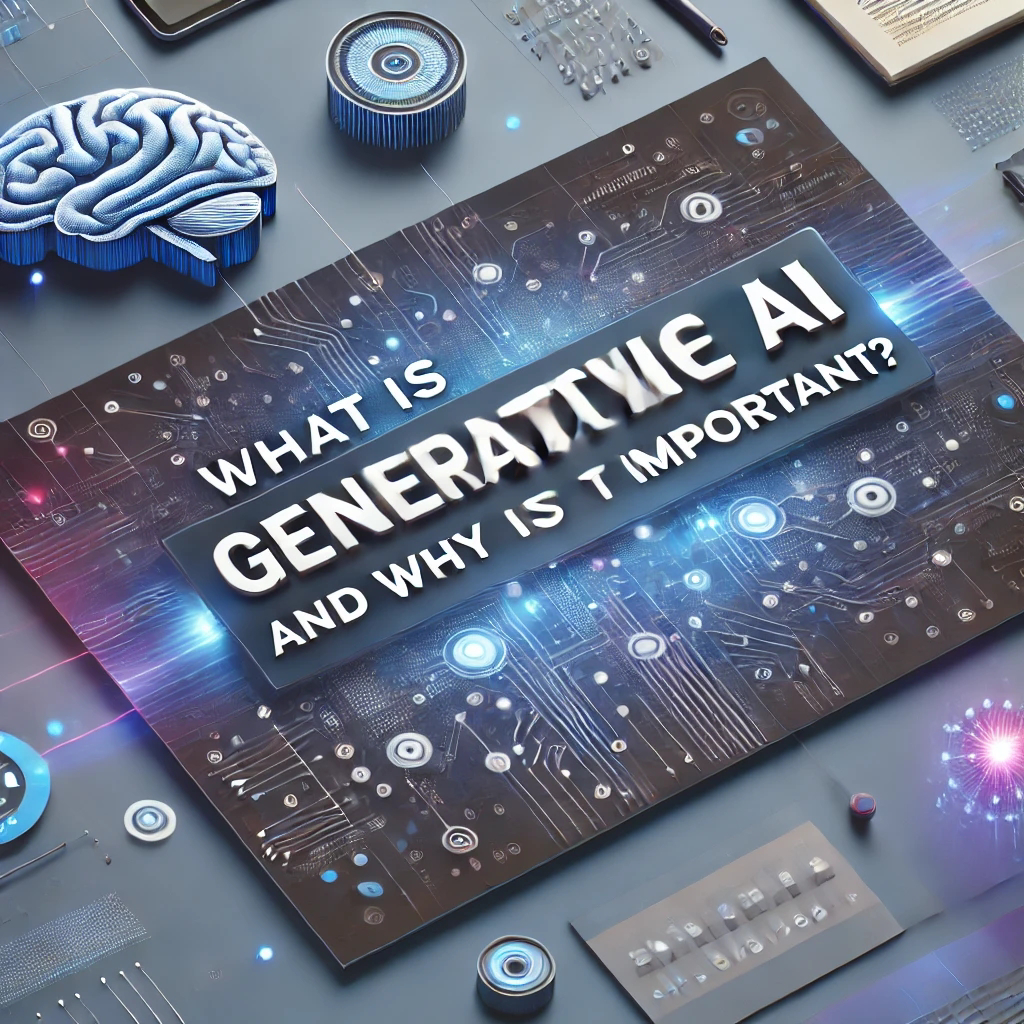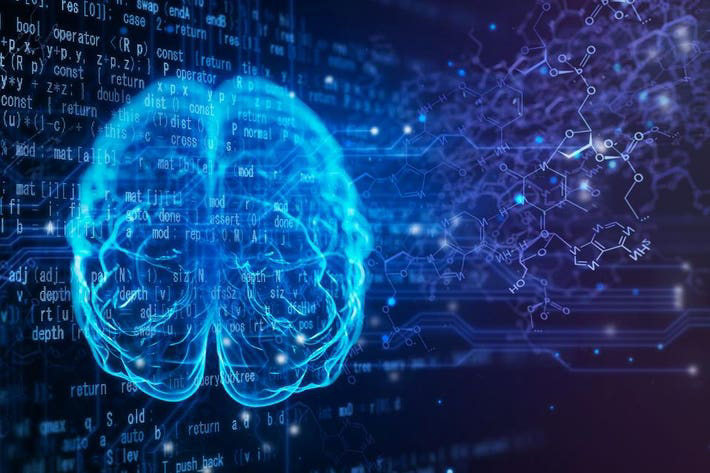Generative AI refers to artificial intelligence systems capable of creating new content. These systems use machine learning models like Generative Adversarial Networks (GANs), Variational Autoencoders (VAEs), and large language models like GPT (Generative Pre-trained Transformers). Unlike traditional AI, which focuses on recognizing patterns or making decisions, generative AI is designed to produce novel outputs that mimic human creativity.
The implications are profound: businesses can automate time-consuming tasks, creators can enhance their artistic endeavors, and organizations can innovate faster. But how does this work in practice? Let’s delve into its applications.
Generative AI is reshaping the way businesses operate. Here are its most significant applications:
Generative AI simplifies and accelerates content production, allowing businesses to:
Generate Social Media Posts: AI platforms craft engaging captions and posts tailored to target audiences.
Create Visuals: AI tools like DALL·E and MidJourney generate custom images for marketing campaigns or product promotions.
By reducing the time spent on content creation, businesses can focus on strategy and scaling their operations.
Marketing and Advertising
In marketing, generative AI delivers personalized and high-impact campaigns:
Ad Copywriting: AI tools craft attention-grabbing headlines and ad descriptions.
Customer Segmentation: AI creates hyper-targeted campaigns by analyzing user data.
Dynamic Visual Ads: Generative AI designs visuals and animations tailored to specific demographics.
For example, Coca-Cola used generative AI to create unique advertisements that resonated with younger audiences, showcasing its potential in brand storytelling.
Product Design and Prototyping
Generative AI is revolutionizing product design by enabling rapid prototyping:
3D Models and Blueprints: AI tools like Autodesk’s generative design produce optimized prototypes based on specific requirements.
Custom Product Designs: Fashion and automotive industries use generative AI for innovative product aesthetics.
Rapid Iteration: Businesses can test multiple designs faster, reducing time-to-market.
Nike, for instance, uses generative AI to develop customized shoe designs, enhancing customer satisfaction.
Customer Service Enhancement
AI-powered chatbots and virtual assistants are transforming customer service:
Chatbots: Generative AI chatbots like OpenAI's ChatGPT provide instant, personalized responses.
Multilingual Support: AI translates queries and responses in real-time, breaking language barriers.
Voice Assistants: Generative voice tools create natural, conversational interfaces for customer support.
This automation reduces workload for human agents while improving response times and customer satisfaction.
Data Analysis and Prediction
Generative AI excels at processing and visualizing complex datasets:
Predictive Analytics: AI models generate accurate forecasts for sales, demand, or market trends.
Data Visualization: AI tools create compelling graphs and charts for presentations.
Synthetic Data Generation: Generative AI simulates data for training machine learning models or testing algorithms.
For instance, financial firms use AI to predict stock movements, while healthcare organizations leverage it for patient outcome forecasting.
Applications for Creators
Generative AI empowers creators by augmenting their creative process and enabling new forms of artistic expression.
Art and Design: Artists and designers are using generative AI to push the boundaries of creativity
Digital Art: Platforms like MidJourney and DeepArt create stunning artwork based on user prompts.
Graphic Design: AI tools assist in logo creation, branding, and web design.
Fashion: Generative AI inspires avant-garde clothing designs by analyzing trends and historical styles.
For instance, generative AI helped create the 2023 Met Gala exhibition’s futuristic themes.
Writing and Storytelling
Generative AI is a boon for writers and storytellers:
Novel Writing: Tools like ChatGPT generate plots, dialogue, and descriptive text for fiction.
Screenwriting: AI drafts screenplays or adapts books into scripts.
Journalism: Generative AI helps journalists create first drafts, fact-check content, and summarize data-heavy reports.
Creators can use AI to experiment with new writing styles or overcome writer’s block.
Video and Film Production
The video production process is becoming more efficient with generative AI:
Video Editing: AI automates editing, color grading, and visual effects.
Script-to-Video Generation: Tools like Runway generate videos based on text prompts.
Voiceovers and Dubbing: AI synthesizes realistic voiceovers in multiple languages.
Hollywood studios are leveraging these tools to cut costs and speed up post-production processes.
Game Development
Generative AI is transforming the gaming industry by:
Character and World Design: AI creates detailed game environments and lifelike NPCs (non-player characters).
Procedural Content: Developers use AI to generate dynamic levels and challenges.
Story Development: AI models generate branching narratives, making gameplay more immersive.
For instance, games like Minecraft and No Man’s Sky use procedural generation powered by AI.
Music Composition
Musicians and composers are embracing AI for inspiration and production:
Songwriting: AI tools like Amper and AIVA compose original melodies or harmonize existing tunes.
Beat Generation: Producers use AI to create drum patterns and instrumentals.
Audio Restoration: AI restores old recordings by removing noise and improving clarity.
Generative AI is enabling creators to experiment with genres and collaborate in unprecedented ways.
Ethical Considerations and Challenges
While generative AI offers immense potential, it also raises ethical and practical challenges:
Copyright Issues: Determining ownership of AI-generated content is a grey area.
Bias in Outputs: AI systems can perpetuate biases present in their training data.
Misuse: Generative AI can be used to create deepfakes or spread misinformation.
Job Displacement: Automation of creative tasks may reduce demand for human labor in some industries.
Addressing these issues requires robust regulation and ethical AI practices.
Future Prospects of Generative AI
The future of generative AI is bright, with advancements poised to unlock even more applications:
Real-Time Collaboration: AI tools will facilitate real-time co-creation across teams worldwide.
Enhanced Personalization: AI will deliver hyper-personalized content for users.
Integration with AR/VR: Generative AI will power immersive virtual experiences.
Universal Access: Continued development will make generative AI tools more affordable and accessible.
As the technology matures, it will likely become an indispensable tool for businesses and creators alike.
Conclusion
Generative AI is revolutionizing industries, empowering businesses to operate more efficiently and enabling creators to push the boundaries of innovation. From automating mundane tasks to generating awe-inspiring artwork, its applications are vast and transformative.
However, harnessing generative AI responsibly is essential to mitigate ethical concerns and ensure sustainable growth. By embracing this technology and staying ahead of trends, businesses and creators can unlock unprecedented opportunities in a rapidly evolving digital landscape.







.png)














.jpg)
.jpg)
.jpg)

